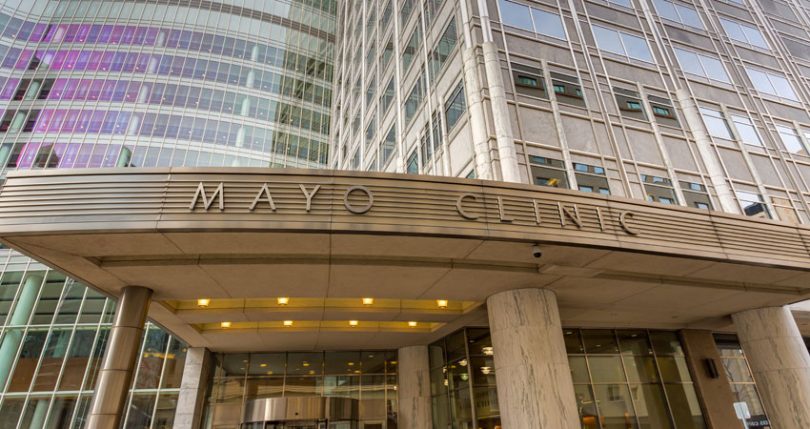Medicalchain announced an agreement with the Mayo Clinic to explore blockchain use cases. Medicalchain is creating a solution for Electronic Medical Records (EMR) and is about to launch its first use case where patients consult doctors via a mobile app. The Telemedicine app is in conjunction with the London-based Groves Medical Group.
Dr. Abdullah Albeyatti, CEO of Medicalchain said: “We are thrilled to be working with Mayo Clinic. Mayo Clinic will provide their world-class healthcare and health IT expertise, while Medicalchain will provide our knowledge of blockchain and crypto. Together we will work on several use cases using blockchain based electronic health records. There’s a lot of opportunity out there, and we feel this working agreement will be of benefit to all healthcare stakeholders.”
While there were no quotes from the Mayo Clinic, Ledger Insights contacted them and confirmed their involvement.
Blockchain companies that ICO vary in terms of quality. Many have a habit of using news to pump their coin value. But Medicalchain seems to be a bit more conservative. Token holders asked the CEO about when Medicalchain will ramp up marketing. The CEO’s response was “when we’re ready”, though he elaborated.
They’re about to launch the MyClinic telemedicine app with Groves at the end of July. The app is currently going through formal user testing by two external companies.
The CEO’s concern is if they switch on marketing and suddenly have demand for 20,000 users, they are not yet scaled up for that. Groves has just 27 doctors. So the plans are to market something more locally in South West London.
“The only thing that is going to give Medicalchain real value is to deliver a real product. We’re not a hype kind of company. The reason we are considered trustworthy is because everybody that works at Medicalchain, including myself, we have a reputation to lose,” said the CEO.
“We’re not somebody who’s just come out of the woodwork out of nowhere. We’re known to people, we’re recognized in our own industries, in our own fields. So it’s more important to me to deliver something the right way.”
After the telemedicine application is live, the next area the company is targeting is the use of EMR in medical research.
Technology
Last year the company issued its cryptocurrency, Medtoken, based on the ERC20 Ethereum standard. However, the public Ethereum blockchain is being used purely for the tokens which in turn will be used for payment.
For medical records, they’re using the private and permissioned Hyperledger Fabric to provide more granular access. So a patient can read their own data, and their doctor can read and write data. The public Ethereum and private Hyperledger Fabric systems don’t interact with each other directly. Instead, the Telemedicine app will talk to each separately.
The company plans to trial Civic’s Uport for identity to register doctors onto the platform possibly during the pilot phase. However, the Groves doctors are already registered on their network, so it’s not critical to use Civic immediately.
Medtokens
The pilot telemedicine app, MyClinic, will accept a variety of payment types. These include Medtokens, Ether, Bitcoin and normal fiat money via debit or credit card. Given the lack of user-friendly cryptocurrency wallets, it would be a surprise if the majority of people don’t use fiat.
So what about the Medtoken? The CEO explained, “We want to encourage, push and support Medtoken over any other cryptocurrency and over any fiat currency as well. The way we do that is we incentivize users.”
It will be cheaper for consumers to pay and doctors to receive payment in Medtokens. Anything else will involve some conversion charges.
For example, if a consumer pays in Bitcoin and a doctor receives payment in dollars, the Bitcoin will be converted into Medtokens which get passed to the doctor and converted to dollars. But both the Bitcoin-to-Medtoken and Medtoken-to-dollar conversions will incur fees. Hence paying in Medtokens will be cheaper.
Only time will tell how the MyClinic pilot goes. But digging a little deeper one can see why Mayo Clinic decided to work with Medicalchain.






